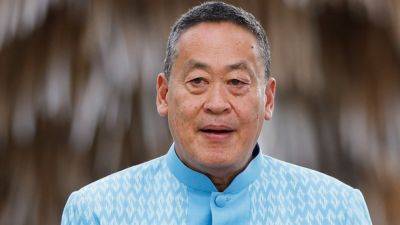In Thailand, many youths are combining modern ‘pop’ rituals with traditional Buddhist beliefs
Pushed by the perceived conservatism of Buddhism and pulled by fun and fashion, many younger Thais are turning to new pop rituals to express their personal beliefs, including finding an unlikely “sacred” emblem in the monstrous form of the Labubu doll created by Chinese toy company Pop Mart.
Am Sriphromyan, a well-known master of Thailand’s Sak Yant, or protective tattoos, has seen a surge in inquiries for her Labubu tattoos from around the world after a TikTok video featuring her pop design in the sacred style common among devout Thai Buddhists went viral.
The fuzzy, pointy-eared monster may be a radical departure from the animal spirits and Sanskrit symbols of traditional Sak Yant, but Master Am says it carries great meaning to those who desire it.
“Bringing modern pop icons like Labubu has helped strengthen Buddhist faith and beliefs,” she told This Week in Asia.
“Those that get tattoos done by me have vowed to live by Buddhist principles as well as think well, speak well and do well, the core beliefs of any religion in the world.”
She says publicity surrounding her tattoos has attracted dozens of people to her suburban Bangkok home, which doubles as a shrine to a constellation of deities, spirits, icons and ethereal figurines with supposedly magical properties.
“They’ve come from all over Thailand and across the world … Australia, Singapore, Malaysia, Taiwan, California and France.”
Additionally, there is now a growing demand for another popular figure from Pop Mart’s blind box gifts, called “Molly,” designed by Hong Kong artist Kenny Wong.
But rather than trivialising faith and belief, Am believes that the use of new symbols can help young people reinterpret faith in a modern context and provide support during challenging







